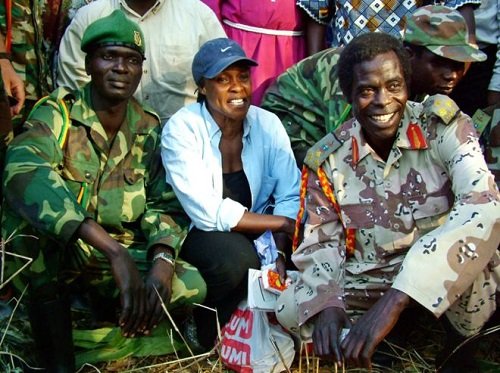
When Betty Bigombe was growing up in northern Uganda in the late 1950s, she walked four miles a day to go to school. She knew getting an education was the only way she could change her life and make a contribution to her community.
Thirty years later her “contribution” would be to carry the fate of her region on her shoulders as she attempted to negotiate peace with Joseph Kony, the notorious leader of the Lord’s Resistance Army.
Bigombe was the eighth of 11 children and grew up in a society where polygamy is still practised today.
“Without education, I probably would be having 20 children in some rural area, carrying out the daily chores of going to the field to dig, harvest, one baby on your back and another one is crawling – one of the many wives,” she says.
Her family received financial and moral support from the church as she continued to study throughout her teens, and ultimately that led to the offer of a fellowship from Harvard University.
In the early 1980s, she returned home as a married woman with two children. Her country was in the middle of a war that pitted President Milton Obote’s forces against the guerrilla movement of Yoweri Museveni.
“At that time, I was hiding some people who were supporting President Museveni. I worked with a German woman who was with the UNHCR (the UN Refugee Agency) and we smuggled people whose lives were in danger to Kenya. With a UN flag, it was OK. We could go through road blocks and get them to safety. So, that’s really what triggered off fighting injustices.”
In 1986, Museveni became president, a position he still holds to this day. He rewarded Bigombe by making her a government minister.
“I was very disappointed when I was appointed, because it was just men. All they did was ask me to sit and read papers, so I went and told [the] president that I wanted to resign because I could not do crossword puzzles in the office, I could not take a novel to the office to read. I wanted work. He was shocked that I would want to resign. African ministers don’t resign, especially a woman,” she says. –BBC






